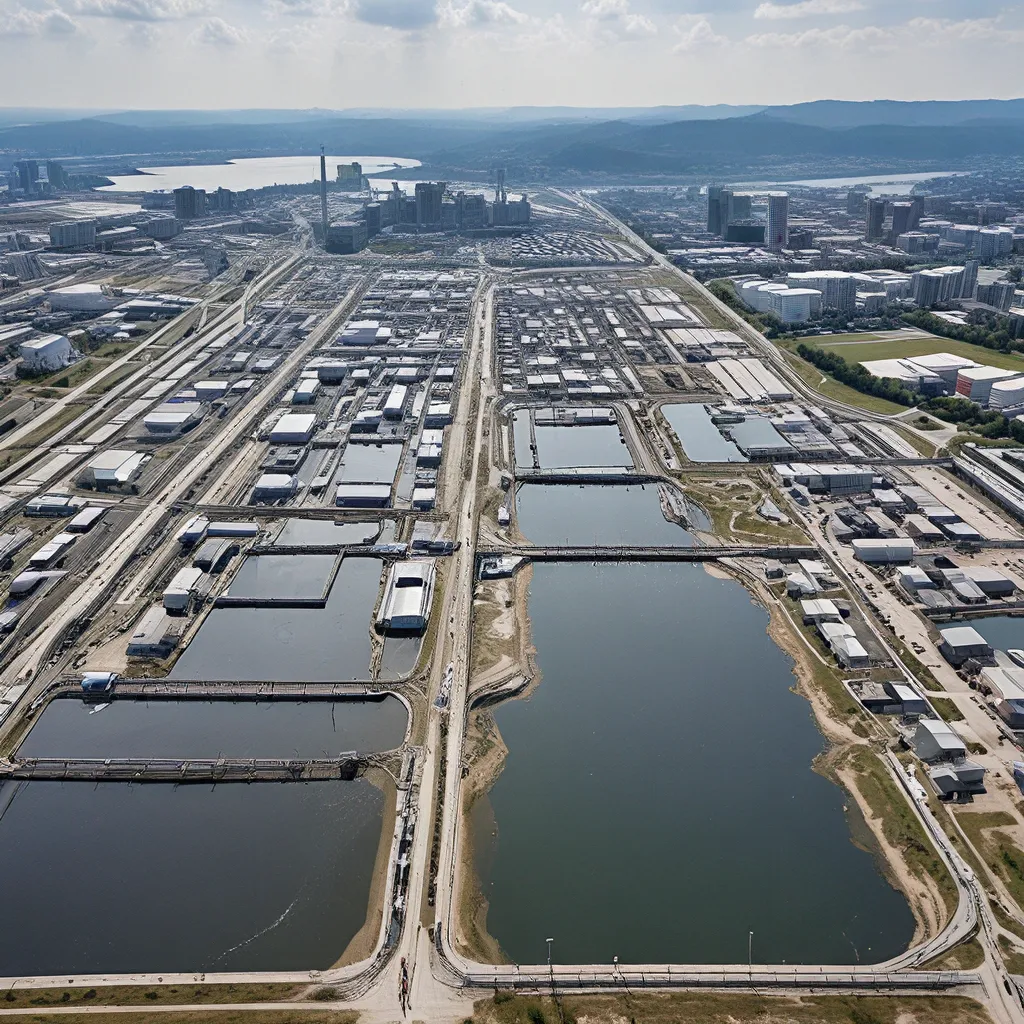
Embracing the Digital Revolution in Water Utilities
As an avid champion of sustainable water management, I’ve been fascinated by the transformative impact of digital technologies on the water utility sector. It’s remarkable to witness how artificial intelligence (AI), internet of things (IoT) sensors, data analytics, and smart metering are revolutionizing the way we approach water treatment and distribution.
Recent studies have shown that digital transformation in the water industry could unlock substantial economic benefits, with estimates suggesting global savings of over $80 billion in capital expenditure and $85 billion in operational expenditure. But the advantages extend far beyond just the bottom line – these cutting-edge solutions are also paving the way for a more sustainable, resilient, and efficient water future.
Optimizing Water Utility Operations through Digital Integration
One of the standout innovations in this space is the work of Waltero, a trailblazer in the world of digital water utility solutions. Their technology literally transforms any conventional water meter into a smart, connected device, empowering utilities to harness real-time data for more informed decision-making.
Imagine being able to track water consumption patterns, detect leaks, and optimize distribution with the click of a button. That’s the power of Waltero’s smart metering technology. By leveraging IoT sensors and cloud-based platforms, water utilities can now gain unprecedented visibility into their systems, enabling them to respond swiftly to issues, minimize service disruptions, and optimize resource allocation.
But the benefits of digital transformation go beyond just operational efficiency. These technologies are also driving sustainability by reducing water loss, enhancing water quality management, and contributing to overall environmental conservation efforts.
Sustainability and the Digital Water Utility
One of the most pressing challenges facing water utilities worldwide is the issue of non-revenue water – the water that is lost through leaks, theft, or other inefficiencies. The World Bank estimates that digital water utility solutions can help reduce non-revenue water by as much as 15%, a remarkable feat.
Waltero’s innovative IoT devices and real-time monitoring capabilities play a crucial role in this regard. By constantly tracking water flow and system integrity, these technologies can pinpoint leaks before they become major problems, allowing utilities to take proactive measures and conserve precious water resources.
But the sustainability benefits of digital transformation extend far beyond just water conservation. These solutions are also helping to reduce the carbon footprint of water utilities by optimizing energy consumption in distribution and treatment processes. IoT sensors can rapidly identify changes in nutrient concentrations, mitigating issues like eutrophication and contributing to overall water quality improvement.
Moreover, Waltero’s commitment to sustainability extends to its own operations, with the incorporation of renewable energy sources like solar panels, wind turbines, and hydropower systems as key components of its sustainable practices. This holistic approach to environmental stewardship is a testament to the company’s vision for a more sustainable water industry.
Bridging the Gap: Digital Transformation and Small Water Utilities
While the potential of digital transformation in the water sector is undeniable, the path to implementation can be daunting, especially for smaller utilities. Challenges such as limited resources, technical expertise, and aging infrastructure can often hinder the adoption of these transformative technologies.
Waltero, however, has recognized these pain points and has developed solutions to make digital transformation more accessible. Their W-Sensor technology, for instance, can be installed quickly and easily without the need for specialized personnel, significantly reducing installation costs.
Moreover, Waltero offers a comprehensive approach to supporting small utilities, including financial assistance, technical guidance, collaborative partnerships, and tailored technology solutions. This multifaceted support helps smaller players navigate the procurement process and successfully implement digital projects, ensuring that the benefits of innovation are accessible to utilities of all sizes.
The Future of Water Utilities in Smart Cities
As we look to the future, the integration of water utilities with smart city infrastructure is crucial. With the global urban population expected to reach 70% by 2050, the demand for efficient and sustainable water management systems will only continue to grow.
Smart water management solutions will be at the heart of this transformation, with predictive analytics and AI playing a pivotal role in enhancing water quality, forecasting demand, and promoting efficient resource utilization.
Waltero’s cutting-edge technologies are at the forefront of this movement, seamlessly integrating water utilities with citywide smart infrastructure. By harnessing the power of data and AI, these solutions can help urban centers adapt to the challenges of climate change, ensure equitable access to clean water, and lay the foundation for a more sustainable and resilient future.
Embracing the Digital Future: A Sustainable and Efficient Water Landscape
As I reflect on the remarkable advancements in the water utility sector, I can’t help but feel a sense of excitement and optimism. The digital transformation driven by AI, IoT, and smart metering is not merely an incremental change – it’s a fundamental shift in the way we approach water management.
By leveraging these transformative technologies, water utilities can enhance operational efficiency, reduce environmental impact, and ensure the sustainable use of this precious resource. And companies like Waltero are leading the charge, providing innovative solutions that empower utilities of all sizes to embrace the digital future.
As we continue to navigate the complexities of a changing climate and growing urban populations, the water sector’s digital transformation will be crucial in shaping a more sustainable and resilient tomorrow. So let’s dive in, explore the possibilities, and be part of the solution that ensures our water resources are managed with the utmost care and efficiency.